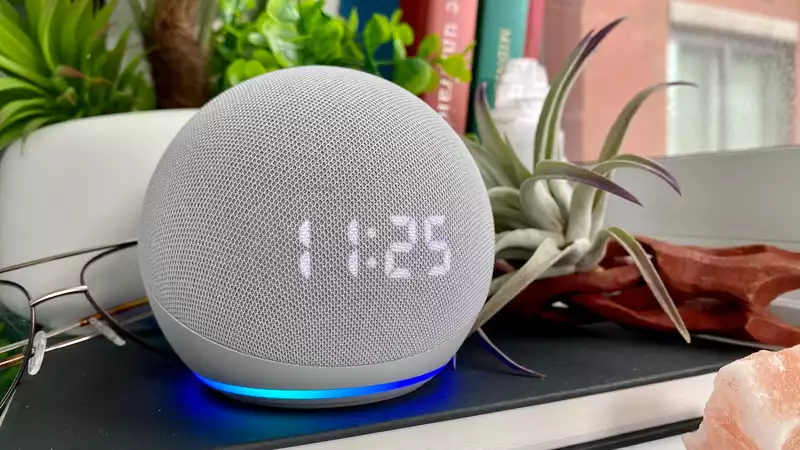Privacy advocates have long been concerned about the impact of smart speakers, and now a new paper claims that the popular Amazon Echo series uses voice data to target advertising both on Amazon and on the broader web
The paper is titled Your Echos are Heard: The paper was written by researchers from the University of Washington, University of California, Davis, University of California, Irvine, and Northeastern University
The paper claims that chatting with an Echo collects data that can be shared with up to 41 advertising partners, and that the data is used to "infer user interests" and "provide targeted advertising" on both the Echo and the broader Internet Such data, the paper claims, can facilitate "30 times higher ad bids from advertisers"
When contacted by The Verge, Amazon acknowledged some points in the paper but disputed others
"Similar to what you would experience if you shopped at Amazoncom or requested a song on Amazon Music, if you ordered paper towels from Alexa or asked Amazon Music to play a song, a record of that purchase or song playback would be available to Amazon and may provide information to related ads that appear on other sites where Amazon advertises," an Amazon spokesperson said
"Customers may receive interest-based ads when they use ad-supported premium content, such as music, radio, and news streams," Amazon added
However, the company disputed the paper's conclusions on a key point regarding broader web advertising The researchers reached this conclusion by creating personas with diverse interests (eg, pets, dating, health) to use Alexa's third-party skills The targeted ads that these personas subsequently found on the web were, according to the researchers, "strong evidence that smart speaker interactions are being used for the purpose of targeting ads, and that this ad targeting implies significant data sharing among multiple parties was strong evidence"
Not so, says Amazon An Amazon spokesperson told The Verge, "Many of the study's conclusions are based on inaccurate reasoning and speculation by the authors and do not accurately reflect how Alexa works" We are not in the business of selling customers' personal information, nor do we share Alexa requests with ad networks"
This perhaps suggests that it is the Alexa skill developers, not Amazon itself, who are responsible for the researchers' findings Also, while Amazon requires third-party developers to publish their privacy policies on their skills pages, the researchers found that this is usually not the case In fact, they found only 10 skills that fully disclosed their data collection and privacy policies
It is not certain whether consumers will stay away from the best smart speakers if they are concerned about data privacy With free services, the old mantra, "If you're not paying for the product, you are the product," is sort of tacitly accepted But with $100 smart speakers, it's more complicated If the researchers are right, you are paying for both cash and data
If the data from the smart speaker is useful to the company that manufactures it, it could perhaps explain why the product is competitively priced However, if people are subsidizing the low cost of entry with additional data to help the manufacturer, then it should certainly be more clearly advertised
As the researchers conclude, the current situation is too opaque Smart speakers are "black box devices without open interfaces that allow independent researchers to disclose what data is being collected and how they are being shared and used" Without a more open system, researchers and the public alike will continue to wonder exactly what they are giving away when they invite such smart products into their homes










Comments